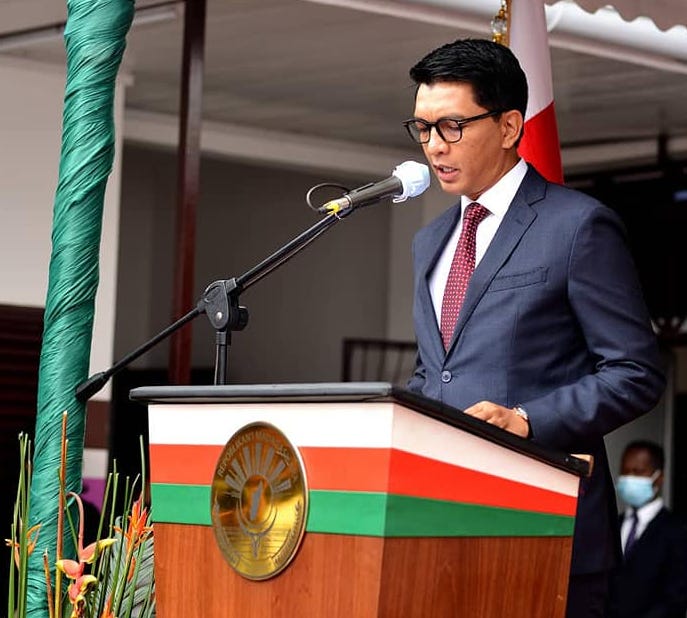Madagascar’s President Andry Rajoelina Ousted in Impeachment Vote
Madagascar’s President Andry Rajoelina said he had fled the country out of fear for his safety after a section of the military joined mass anti-government demonstrations.
Speaking late Monday (Oct. 13) in a video posted to the presidency’s official Facebook page, Rajoelina called for political dialogue and respect for the constitution, but did not announce his resignation.
His speech may have come a moment too late.
Members of Parliament in Madagascar’s national assembly have since voted to impeach Rajoelina by a margin of 130 votes to one blank ballot, including members of Rajoelina’s party, IRMAR, the majority of whom voted against him.
The High Constitutional Court will now validate the vote.
On Tuesday morning (Oct.14), Colonel Michael Randrianirina, head of the elite CAPSAT military unit, read a statement on national radio, according to the BBC.
“We have taken the power,” Randrianirina declared to the nation.
In the capital, Antananarivo, thousands gathered outside city hall on Monday, waving flags and cheering as soldiers arrived in armored vehicles. Many demonstrators displayed banners featuring symbols popular among Gen Z protest movements worldwide.
More than 90% of Madagascar’s population is Malagasy, divided into approximately 20 ethnic groups. The Merina, meaning “Elevated People,” are the largest and most influential, living across the island’s central plateau. The Betsimisaraka, or “Inseparable Multitude,” dominate the east, while the Betsileo, “Invincible Multitude,” inhabit the highlands near Fianarantsoa. Other key groups include the Sakalava, Tsimihety and Antandroy, among many smaller communities.
Weeks of demonstrations led largely by young protesters under the banner “Gen Z Madagascar” have gripped the island nation since September. Rajoelina has faced increasing backlash over persistent power cuts, poverty and water shortages, as his critics accuse his administration of corruption. Tensions spiked on Saturday when soldiers from the elite Capsat unit defected to the protesters’ side and called on Rajoelina and his ministers to step down.
“I was forced to find a safe place to protect my life,” Rajoelina said in his recorded message. The president’s office claimed the broadcast was delayed because soldiers tried to take control of state television, so the speech was instead broadcast across social media.
Reports suggested he might have left aboard a French military aircraft, though French officials declined to confirm.
The defection by Capsat also played a prominent role in the 2009 coup, which brought Rajoelina to power for the first time. He is now politically isolated.
At least 22 people have died since the unrest began, according to the United Nations. The government disputes that figure, saying only 12 people were confirmed dead and labeling them “looters and vandals.” Security forces have been accused of using excessive force, and gendarmes have admitted in a video statement to “faults and excesses” in their response.
Human rights organizations are now calling for an independent investigation.


